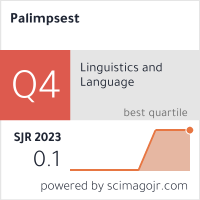STUDENT SLANG AND THE CHANGE İN STUDENT SLANG FROM THE EİGHTİES TO THE PRESENT
DOI:
https://doi.org/10.46763/PALIM23816025kAbstract
Each new generation has a different perspective on culture, language and slang, which is a field that witnesses social change and constantly renews and expands itself. The most similar aspect of slang and youth language is that they are in a state of rapid change. In this study, it is aimed to determine the generational difference in student slang and the change in student slang from the eighties to the present day by scanning slang dictionaries and conducting a survey. In the first part of the study, it was determined whether the 89 words and idioms that meet student slang, which were determined based on the sixth edition of Ferit Develioğlu's dictionary titled Türk Argosu (İnceleme ve Sözlük) in 1980, were included in the thirteenth edition of Hulki Aktunç's Büyük Argo Sözlüğü (Tanıklarıyla) in 2020. In the second part of the study, the validity of these words and phrases was analyzed through a questionnaire applied to university students. This study provides data on the extent to which variables such as gender, age, family income and education level affect the use of slang, the area of use of slang and in which situations it is preferred, students' perception of swearing-slang, and the determining role of time in slang.
Keywords: slang; student slang; slang dictionaries; survey.
Downloads
Downloads
Published
Issue
Section
License
The intellectual property and copyright on the original content of all scientific contributions in the published paper shall remain with the authors. Authors give permission to the JAPS owner to publish the paper. All authors agree to publish the paper under Attribution-NonCommercial-NoDerivatives 4.0 International license (CC BY-NC-ND 4.0)


